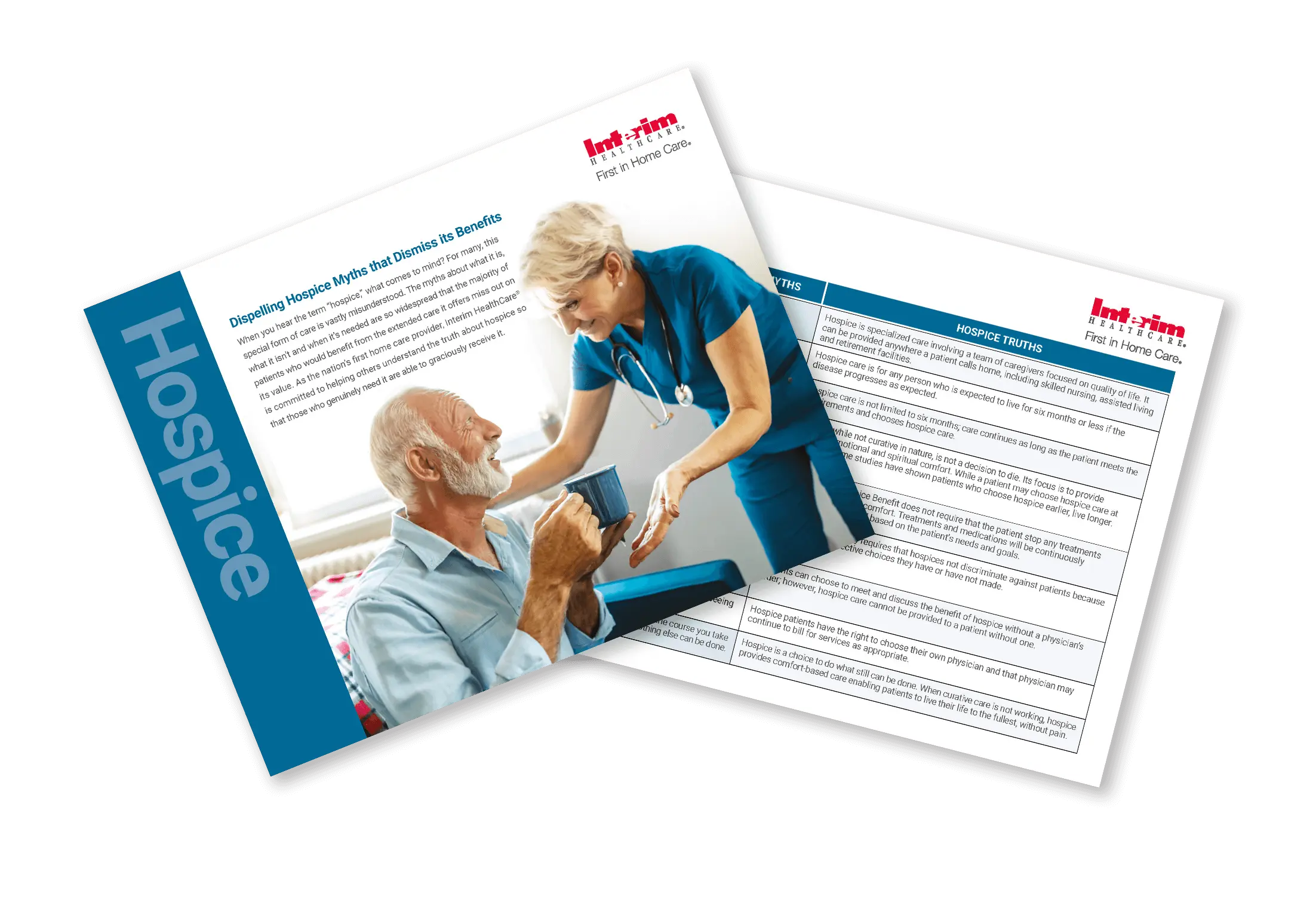
Facing End-of-Life Care: Separating Fact from Fiction with Hospice Myths
What is Hospice?
Hospice is a specialized form of palliative care focused on providing comfort, dignity, and support to patients with a terminal illness and their loved ones during the final stages of life. It prioritizes quality of life and symptom management, offering a holistic approach that addresses physical, emotional, and spiritual needs.
Common Hospice Myths Debunked
Myth #1: Hospice means giving up.
Fact: Hospice care is not about giving up on life or hope. It's about focusing on living life to the fullest in the time remaining. Hospice care teams collaborate with patients and families to establish goals that allow them to make the most of their time together.
Myth #2: Hospice is only for the last few weeks of life.
Fact: While the average hospice stay is around six months, it can be longer or even shorter depending on the patient's needs. Early enrollment in hospice allows patients to access valuable support services and symptom management for a longer period.
Myth #3: You must be in a hospital to receive hospice care.
Fact: Hospice care is typically provided in the comfort of your own home, at a nursing home, or even an assisted living facility. The focus is on creating a familiar and comfortable environment for the patient.
Myth #4: Hospice care stops all medical treatment.
Fact: Hospice care focuses on palliative care, meaning it aims to manage pain and symptoms to improve comfort. However, it does not preclude essential medical treatments, such as antibiotics for infections. Patients can continue curative treatment as desired, with hospice providing supportive care throughout.
Myth #5: Hospice care is only for people with cancer.
Fact: While cancer is a common diagnosis for hospice patients, anyone with a terminal illness can benefit from hospice care. This includes patients with chronic illnesses such as heart disease, COPD, or Alzheimer's disease.
Download Our Free Hospice Myths Guide and Gain Clarity
This guide delves deeper into each myth, providing a comprehensive understanding of what hospice care entails. It also explores the benefits of hospice care for both patients and their families, addressing concerns about emotional support, financial implications, and the role of religious beliefs.
Empowering Families to Make Informed Decisions About Hospice
By dispelling the fog of hospice myths, we aim to empower families to make informed decisions regarding end-of-life care. With accurate information, families can confidently explore hospice as an option that provides comfort, support, and dignity during a challenging time.
Download your free Hospice Myths Guide today and gain valuable insight into this compassionate approach to end-of-life care.